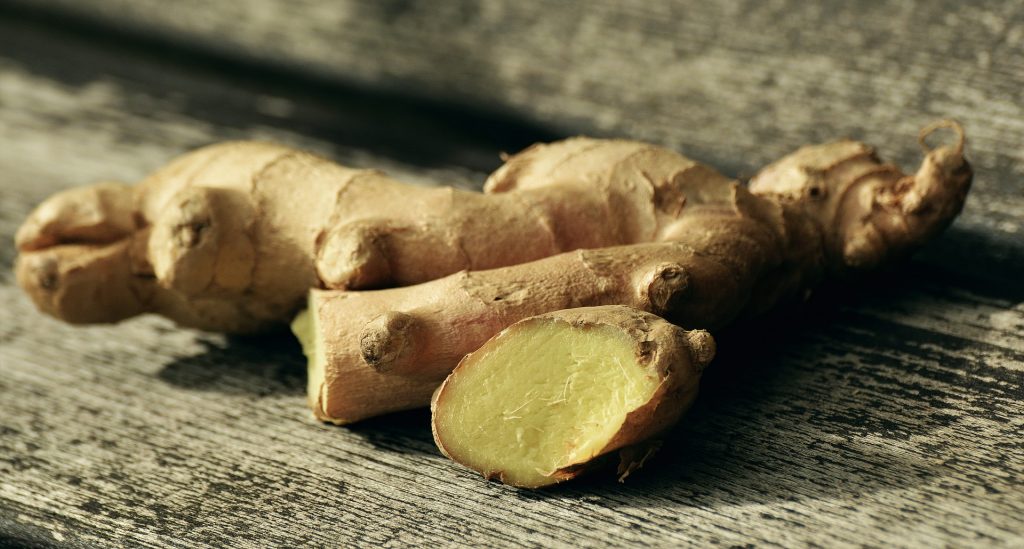 Ginger (Zingiber officinale) is a perennial flowering plant that is used in traditional medicine for its anti-inflammatory properties. The rhizome of the plant is used for this purpose and is often called ginger root or ginger. Ginger belongs to the same family as turmeric, the Zingiberaceae family, and this may explain the similar anti-inflammatory effects these plants possess. As well as being good anti-inflammatories, rhizomes of both plants also contain high amounts of antioxidants. Turmeric has been shown to possess significant antidepressant and anxiolytic effects in humans and animals, and this may relate to its anti-inflammatory and antioxidant effects. Therefore it is no surprise that ginger shares some of the same mood elevating properties. For example, in one study, researchers investigated the effects of ginger rhizome extracts on rats. Extract of the dried rhizome showed significant anxiolytic, anticonvulsant and sedative effects on the rats, which was similar to the benzodiazepine drug diazepam.
Ginger (Zingiber officinale) is a perennial flowering plant that is used in traditional medicine for its anti-inflammatory properties. The rhizome of the plant is used for this purpose and is often called ginger root or ginger. Ginger belongs to the same family as turmeric, the Zingiberaceae family, and this may explain the similar anti-inflammatory effects these plants possess. As well as being good anti-inflammatories, rhizomes of both plants also contain high amounts of antioxidants. Turmeric has been shown to possess significant antidepressant and anxiolytic effects in humans and animals, and this may relate to its anti-inflammatory and antioxidant effects. Therefore it is no surprise that ginger shares some of the same mood elevating properties. For example, in one study, researchers investigated the effects of ginger rhizome extracts on rats. Extract of the dried rhizome showed significant anxiolytic, anticonvulsant and sedative effects on the rats, which was similar to the benzodiazepine drug diazepam.

Analysis of ginger root extracts used for their anti-anxiety effects suggest that they contain gingerol, and that these compounds may exert part of their activity through the 5-HT3 receptor. Interaction with the 5-HT3 receptor may give gingerol benzodiazepine-like activity. However, ginger is both an anti-inflammatory and antioxidant, and this combination may contribute towards the mood elevating effects of ginger.
In another study, researchers assessed the effects of ginger root in combination with Ginkgo biloba extract in rats. The results of the study showed that the ginger and ginkgo combination had significant anxiolytic effects on the animals, and that these effects were comparable to the anxiolytic drug diazepam. In another similar study, the mood elevating effects of a combination of ginger and ginkgo were investigated in rats. The results of the study showed that the combination of ginger and ginkgo was effective at reducing the anxious behaviour of the rats, when given in a ratio of 2.5 part ginger to 1 part ginkgo extract. The researchers also demonstrated impaired memory function with use of diazepam in the rats, but not such impairment of memory with the ginger and ginkgo combination. Therefore ginger may be useful as a anxiolytic both alone, and in combination with Ginkgo biloba. As ginger is a food, it is quite safe and can be added to foods and drinks to improve flavour or taken as a supplement.
Eat Well, Stay Healthy, Protect Yourself
RdB
